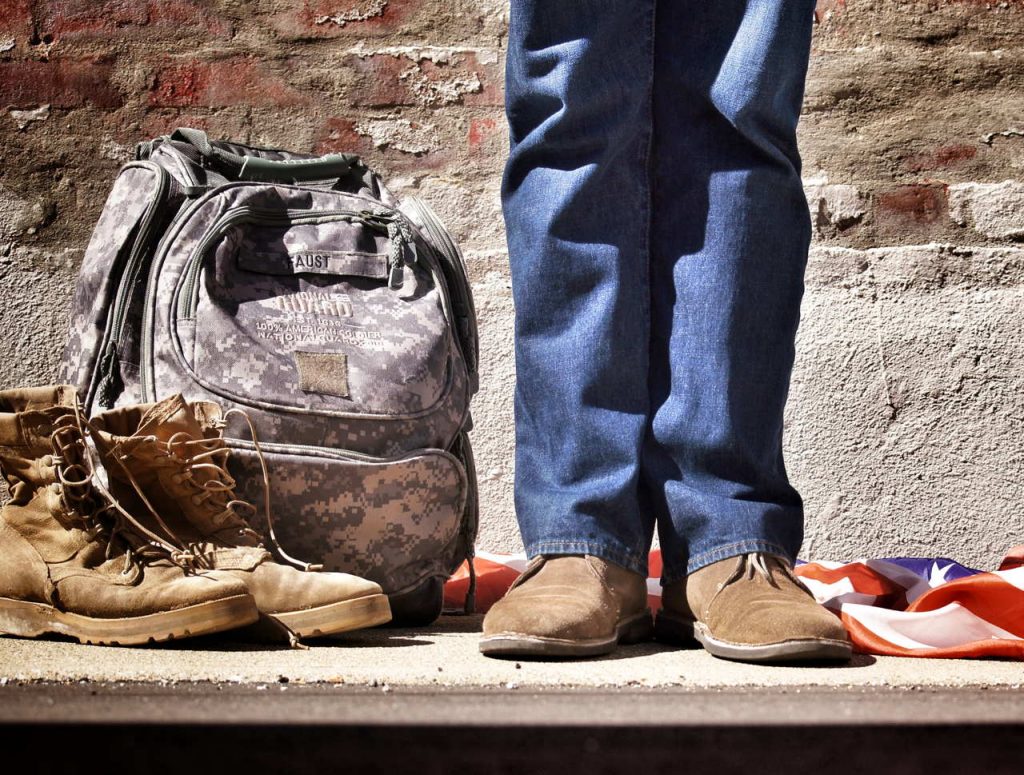We recently received a letter from a soldier serving in Iraq who will be coming home to the States soon. He asked Boundless for advice on how a Christian soldier’s faith should be involved in how he returns back to civilian life after being at war.
In a way it’s a hard question to answer. Everyone’s experience is different. But I can give a more general response that I hope will be useful to this soldier and to all the other men and women serving in our military, most especially those who have served in Iraq and Afghanistan, and to their friends and loved ones.
Be prepared for a rush of emotions: joy at returning home, perhaps grief from seeing comrades killed or injured, the jumbled-up mixture of revulsion, dismay, loathing—who knows what?—from having witnessed some horrible things. For those of you who really saw some tough fighting, be prepared for survivor’s guilt. Why did you live and others die? Stop asking “what if?” questions. Don’t torture yourself this way, since the questions are unanswerable.
Oh, and be prepared for the good emotions to fade pretty quickly but the not-so-good ones to hang around. More on that in a bit.
Most important, you will probably find it hard to talk about these things—at least to anyone who was not there. There’s the “where do I even begin?” feeling when the subject is broached. It’s easier to stay silent. A recent article in The New York Times does a good job of showing how vets will open up with each other about things that they won’t with others.
Shifting from “hunter-killer mode” to husband-student mode is so sudden, it’s insane. One day you’re in Baghdad, the next you’re in Atlanta, passing rows of cheering civilians at Hartsfield airport. Then you get on with your life. The price is steep, in sleepless nights, troubled consciences and buried anger. People have no idea, the veterans said.
Wives, friends and other loved ones, don’t take this personally. It’s not that the returning soldier doesn’t love you or appreciate your friendship; it’s just that … well, where do I even begin? Sometimes when you least expect, the stories and memories will come flooding out. Don’t try to stop them. Just listen. Some of it might be pretty rough. Don’t react negatively, and by all means don’t judge.
Be aware, too, that this may never happen. Some vets go a lifetime without ever opening up.
Back to the emotions. It is no sign of weakness to say you’re hurting. Back when I was in Marine boot camp, they’d announce morning sick call by saying, “Give me all the sick, lame and lazy, blind, crippled and crazy.” That instantly sent the message that to admit to being hurt was frowned upon. Unless you were visibly missing a limb or gasping through a sucking chest wound, Marines didn’t admit to being hurt. It was macho to play through the pain. One young Marine I know who fought in Fallujah told of how he and his comrades would not seek medical help for the tiny bits of micro-shrapnel that peppered their skin from a grenade explosion. (“Dots,” they called the little black flecks of metal just below the skin.) “They’ll just work their way out in time,” was the way he put it.
Perhaps so for “dots,” but not so for mental pain. Don’t hide it. Don’t try to play through it. And for heaven’s sake don’t try to self-medicate with booze, drugs, carousing or wild spending sprees. Untreated, it will fester. It will twist and morph into unimaginable shapes. Even if you never develop full-blown PTSD (post-traumatic stress disorder), you might exist in a fog of low-grade depression, a cocoon of dark gray that colors your every interaction. Even today, many years later, I sometimes find myself in a very dark mood that comes unbidden. I try to contain it, but some inevitably leaks out, touching everyone around me.
Untreated, this pain leads in very ugly directions. Compound it with other setbacks—say, a girlfriend’s dumping you or the inevitable grind and disappointments of life—and the results can be very bad. The U.S. military is suffering a near-epidemic of suicides from soldiers who do not recognize what they are suffering or consider it a sign of weakness to seek help. In the past the military could have done a better job of helping, too, but that’s another story. To its credit, it has recognized the problem and is working hard to counter it.
It is not weak or unnatural to hurt mentally and emotionally. Jesus, the ultimate man, wept when he learned that his friend Lazarus had died. Think about this: the Lord of the universe, the man with the power of life in his hands, cried at the death of a friend. It is not a denial of your faith to grieve. The psalms are full of weeping and sorrow.
And it doesn’t necessarily have to be grief. It can just be that mixed-up jumble of who knows what that’s dragging you down. It’s a bunch of macho nonsense to deny yourself the help that others are willing to offer. Beyond the help a chaplain or medical officer can offer, you have a strong tower to run to, a rock to rely on. Know that your ultimate refuge is waiting to hear from you, for you to unburden yourself to Him.
Lean on Him. He knows what you’re feeling. He understands. You have the Ultimate Friend at your side.
I have way more to say but not the room to say it here. If I might humbly suggest, my book On the Frontline goes into more detail on living the life Christ intends for you as your serve our nation in uniform.
Finally, welcome home … and thanks for your service!











